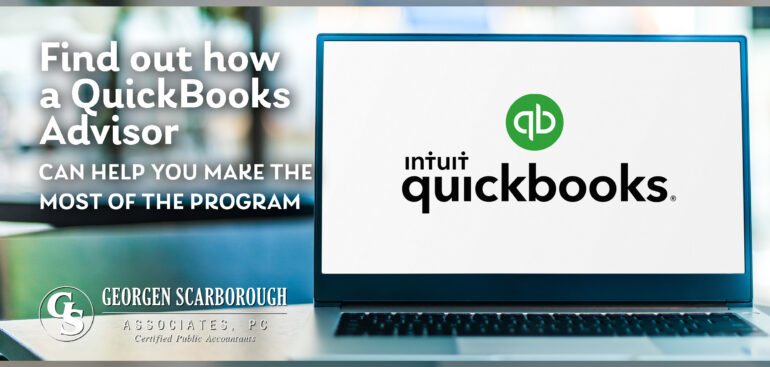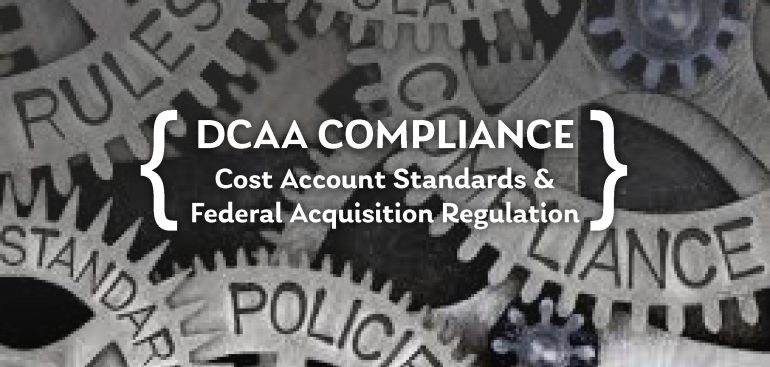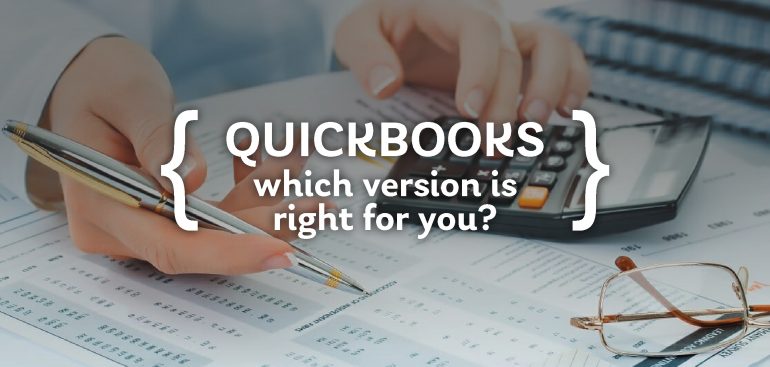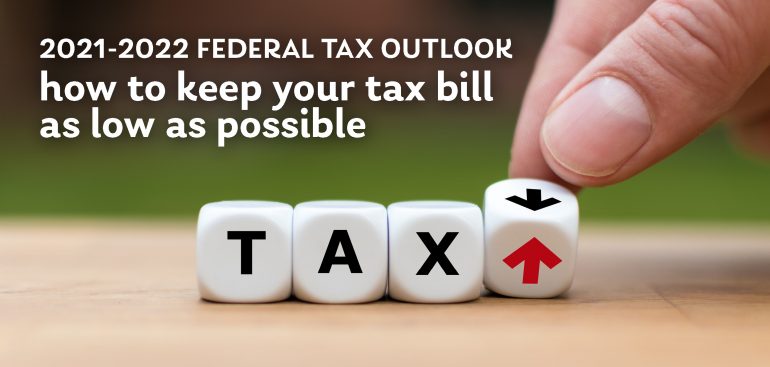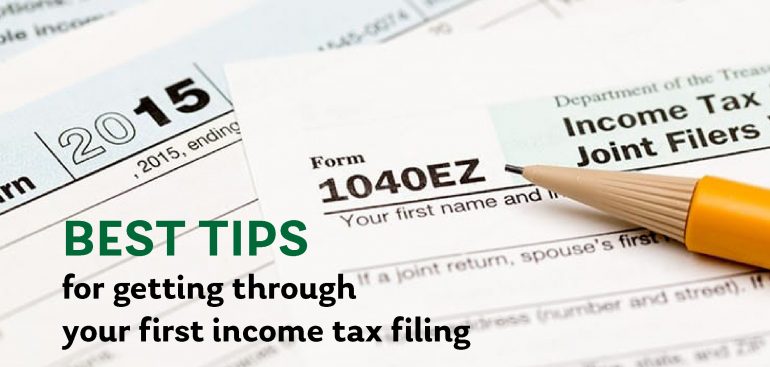QuickBooks is an extremely useful tool, and makes it easier than ever for businesses to stay on top of their finances. However, not all businesses use this tool effectively. A QuickBooks advisor is often necessary to help you make the most of this powerful software.
Working as a contractor for the federal government can give you access to large, profitable projects. However, a key component of government contracting is ensuring that your business and its processes are Defense Contract Audit Agency (DCAA) compliant. Learn what it means to be DCAA compliant.
Cost Account Standards (CAS) and Federal Acquisition Regulation (FAR)
In simple terms, being DCAA compliant means that your business can comply with a DCAA audit. This audit checks if your business is compliant with government regulations such as Cost Account Standards (CAS) and Federal Acquisition Regulation (FAR). Thus, to be DCAA compliant, your business must be transparent in its financial management. It must clearly state how the contract money is used and the results that emerged.
DCAA-approved accounting software
An important aspect to remember is that the DCAA does not provide certification or accreditation to any accounting systems. While these systems may help your business be compliant with DCAA audits, they are not formally recognized by the DCAA.
Types of DCAA audits
There is no one type of DCAA audit. Instead, they perform a variety of checks including forward pricing, incurred cost, Contract Purchase Systems Review (CPSR) etc.
How to be DCAA compliant
Accounting experts from George Scarborough can help you with audit support and ICE submission support, while ensuring your employees perform their basic bookkeeping tasks efficiently. We also offer you the option to outsource the entire DCAA compliance process to us.
Georgen Scarborough has years of experience working with various government contractors from start-ups to large businesses. We want to help you with your accounting needs and ensure you are not faltering in the DCAA compliance process. Contact us today.
The QuickBooks accounting software package helps small and medium businesses run their affairs smoothly. It does this with easy transacting, reporting, tracking, and invoicing. Learn about how to choose the right QuickBooks version for your business. Georgen Scarborough, the leading certified public accountants in Virginia, Maryland, and District of Columbia, outline the various packages suitable for your business needs.
QuickBooks Online or Pro?
Choosing the right QuickBooks software version can help you run your business more efficiently. QuickBooks Online is less expensive than the desktop version as the subscription package. Plus, the Online version includes the updates that run automatically. Another advantage of the online version is that it is easily accessible as it works on other devices. This includes mobile phones. However, Georgen Scarborough recommends buying a low-tier version of QuickBooks Online initially and then upgrading it according to business needs.
The QuickBooks Pro (desktop) version includes additional costs without the added functionalities. This version is recommended for businesses that have strict compliance requirements and do not allow employees to use online software.
QuickBooks Online plans
As mentioned earlier, the QuickBooks Online version is more popular than the desktop version as it is less expensive. Nor does it tie the user down to a contract. For freelancers and independent contractors, QuickBooks also offers several flexible QuickBooks Self-Employed plans.
QuickBooks Self-Employed
The first-tier plan in this version, QuickBooks Self-Employed gives you the ability to track expenses and mileage, estimate your taxes (quarterly) and send invoices from anywhere.
QuickBooks Self-Employed Tax Bundle
With this plan, you enjoy all the benefits of the Self-Employed package. It also includes an additional account that allows you to transfer your tax information to TurboTax. This, in turn, includes the fees for a federal and state return.
QuickBooks Self-Employed Live Tax Bundle
The highest tier of this plan, the QuickBooks Self-Employed Live Tax Bundle includes all the features of the previous packages. It also offers unlimited advice from a qualified CPA who can also conduct a final review of your tax returns.
QuickBooks Online Tiers
QuickBooks Simple Start
This version is recommended for a single user and thus, cannot be used if you have employees. With this package, you can track income, expenses, sales, sales tax, and maximize tax deductions.
QuickBooks Essentials
This version includes additional functionalities. Functionalities include tracking payment statuses and simultaneous payment of multiple vendors. It is suitable for three users.
QuickBooks Plus
The most popular version, QuickBooks Plus includes all the benefits of Simple Start and Essential. Additionally, it allows you to track inventory and project profitability. It is suitable for five users.
QuickBooks Advanced
Lastly, QuickBooks Advanced includes a dedicated account manager and the ability to send and import multiple batch invoices. This enterprise-level version is suitable for 25 users.
We hope this blog will help you choose the right QuickBooks version for your business. Contact Georgen Scarborough, providers of quality financial and accounting assistance, for more information on how QuickBooks can help your business flourish.
There are a lot of factors affecting the federal tax outlook for 2021-2022: a global pandemic and recession; business closures and job losses; both houses of Congress controlled by the Democrats; and a significant policy shift in the Executive Branch. We can expect some major changes in tax laws, which will affect the finances of all Americans in one way or another.
While Congress and the Biden White House are still in the process of ironing out the details, some general trends are emerging, which will likely characterize the operations of the federal tax system for at least the next four years. Without spending too much time on the details of the laws and regulations, let’s consider what you need to do to lower your tax bill in light of the new fiscal outlook.
Make the most of the standard deductions
While some of the deduction guidelines and limits are set to change, your approach should remain the same: always strive to get the maximum benefit. If your total itemizable deductions are close to your standard deduction amount, consider accelerating any charitable deductions in the current year to exceed the standard deduction. In this way, you will be making payments that will lower this year’s tax bill.
Be mindful of the Biden administration’s proposed changes
President Biden will be introducing a number of changes to the tax laws that are set to favor lower-income earners while placing heavier obligations on the wealthy. Those who earn in excess of $400,000 per year will have to pay more in taxes. Tax breaks on real estate and inheritances will fall away, and more stringent limits will be placed on itemized deductions.
Individuals and families in lower to middle-income brackets will receive a few additional tax breaks. Speak to a certified public accountant about how these will affect your situation and how you can adjust to accommodate the changes, and either soften their impact or make the most of the potential benefits.
A certified public accountant can help you navigate the changes to tax laws, manage your gains and losses and get the most of the deductions and benefits while maintaining 100% compliance with shifting regulations. Contact Georgen Scarborough to see we can assist you with your federal tax outlook for 2021 and 2022.
How are President Biden’s tax laws likely to affect your finances for the next four years?
When he was on the election trail in 2020, the president made his tax policy quite clear in a series of statements and speeches. Even before he spelled out the specifics, it was apparent which way his administration would go: higher taxes for corporations and the very wealthy and some much-needed relief for everybody else. Now that he is beyond his first 100 days, it is time to look at how these general policy statements will translate into actionable laws and how they will affect you. Here are five of the most important tax plans that the Biden administration has in store:
1. Higher maximum rate
Biden said that he would raise tax rates on all individuals earning more than $400,000 a year. In more concrete terms, the top individual tax rate on ordinary income has increased to 39.6% from the 37% rate that has been in effect since 2017. So, if you fall into that tax bracket, you can expect to pay 2.7% more on your federal taxes.
2. Itemized deductions
The president intends to limit the tax benefit of itemized deductions to 28% for high-income individuals. This means that, if you fall into the 39.6% tax bracket, every dollar of allowable itemized deductions will reduce your tax bill by no more than 28 cents.
3. New credits for home buyers
Eligible first-time homebuyers are set to be entitled to a new refundable tax credit of the lesser of 10% of the purchase price or $15,000. A major plus is that qualified individuals can collect the credit at the time of the purchase of the home, rather than waiting until they file their tax returns.
4. Increased corporate federal income tax
The Tax Cuts and Jobs Act (TCJA) of 2017 reduced the corporate income tax rate from a maximum of 35% to a flat 21%. The Biden administration will not return this rate to its pre-TCJA level, but will raise it to 28%.
5. Increased child and dependent care credits
The Biden tax plan includes provisions to double the minimum refundable child care tax credit from $2,000 to $4,000 for one child. This applies to families earning less than $125,000 a year. Families that earn between $125,000 and $400,000 per year will receive reduced credits.
There are several other tax reforms forthcoming from the Biden administration. To understand how each of them affects you (or doesn’t, as the case may be), you should enlist the help of certified public accounts. Based in Vienna, Virginia, Georgen Scarborough helps individuals, families, estates, and trusts to manage their tax affairs. Contact us for more information on our services and how we can assist you with your taxes in light of President Biden’s new tax laws.
From individuals and families to non-profits and government contractors, tax season seems to appear faster and faster each year. An extension of time to file gives you more time to prepare your federal tax return.
Although you may request up to an additional six months to file your individual income tax return, this does not grant you any extension of time to pay your taxes. It is also essential that you apply for an extension no later than the regular due date of your return.
Here are three ways you can request an extension:
1. E-file Your Extension Request
Regardless of your income, individual tax filers can submit their Extension Request with the assistance of a tax professional who uses e-filing. Keep the electronic acknowledgement that the IRS has accepted your filing for your records.
2. Make a Payment and Get an Extension
Another way to get an extension is to pay all or part of your estimated income tax due and indicate that the payment is for an extension. Use IRS Direct Pay, EFTPS: The Electronic Federal Tax Payment System, or your credit or debit card. The confirmation number you receive for your records means that you do not have to fill out a separate extension form.
At Georgen Scarborough Associates, PC we have never wavered from our commitment to give each client the personal attention they deserve. For more information on how to apply for a tax return extension, please contact us today. Our tax preparation experts are ready to assist you with tax returns for individuals and small businesses.
Did you know that there are a whopping seven different federal income tax brackets and that each one has its own marginal tax rate?
Determining which tax bracket you are in is dependent on your 2020 taxable income and your filing status, i.e. Single Filer, Married Couples Filing Jointly or Separately, Head-of-Household Filer.
Tax Bracket Table
The table below refers to the 2020 tax brackets:
| Taxable Income in US$ | ||||
| Tax Rate | Single | Married Filing Jointly | Married Filing Separately | Head of Household |
| 10% | Up to $9,875 | Up to $19,750 | Up to $9,875 | Up to $14,100 |
| 12% | 9,876 – 40,125 | 19,751 to 80,250 | 9,876 to 40,125 | 14,101 to 53,700 |
| 22% | 40,126 – 85,525 | 80,251 – 171,050 | 40,126 – 85,525 | 53,701 – 85,500 |
| 24% | 85,526 – 163,300 | 171,051 – 326,600 | 85,526 – 163,300 | 85,501 – 163,300 |
| 32% | 163,301 – 207,350 | 326,601 – 414,700 | 163,301 – 207,350 | 163,301 – 207,350 |
| 35% | 207,351 – 518,400 | 414,701 – 622,050 | 207,351 – 311,02 | 207,351 – 518,400 |
| 37% | Over $518,400 | Over $622,050 | Over $311,025 | Over $518,400 |
It’s Not as Bad as It Seems
Before you calculate the appropriate percentage of your income – take note that it is not a straightforward flat rate, which works in your favor.
For example, a single person with a 2020 taxable income of $100,000 does not pay ($100,000 x 24% =) $24,000. Rather, the taxable income is broken down into the applicable tax brackets that would have applied as your income accumulated:
The first $9,875 of your income is taxed at the 10% rate = $988.
Next you work out the difference between the top figures in the following rates. In this case, $40,125 – $9,875 = $30,250. That amount falls into the 12% rate, totaling ($30,250 x 12% =) $3,630.
Keep going: $85,525 – $40,126 = $45,400. That amount falls into the 22% rate, totaling ($45,400 x 22% =) $9,988. The final step is: the difference between your total income and the bracket maximum, i.e. $100,000 – $85,525 = $14,475. Only that amount will be taxed at the 24% rate = $3,474.
Add up all the tax amounts ($988 + $3,630 + $9,988 + $3,474) and your total due is $18,080. ($5,920 less that a flat rate of $24,000)
If you are still confused about which tax bracket you are in, or for any other tax tips, visit our website or contact the tax experts at Georgen Scarborough today.
Tax laws are continually changing, and it’s essential to be aware of all the new regulations, so you file your income taxes correctly and efficiently. By taking advantage of all new tax laws, you can potentially save thousands of dollars on your next tax return. Here are three of the recent income tax changes for the 2020 tax year that will affect many American taxpayers when they file their next return.
Recovery Rebate Credits
The first round of stimulus payments ($1,200 single, $2,400 for couples), along with the second round ($600 per person) are tax free. These Recovery Rebate payments will not add to your 2020 taxable income. As these payments were technically advanced payments, you will have to calculate the amount you should have received. If you are owed more, you can get the difference back in the form of a refund, or a lower tax bill. Best of all, if you were overpaid, you will not need to repay the difference!
Sick and Family Leave Credits for Self-Employed
The new Families First Coronavirus Response Act has tax relief for self-employed people who couldn’t work due to coronavirus. Self-employed people might qualify for tax credits if they were unable to work for a reason that would have allowed them to claim coronavirus-related sick or family leave had they been an employee.
Boost Your Retirement Savings
For those saving for retirement, the IRS has increased the employee contribution limit for 401(k), 403(b), and most 457 plans to $19,500, from $19,000 in 2019. For those over 50, the catch-up contribution limit has been raised to $6,500, from $6,000 in 2019.
Not being aware of changes in income tax laws could have you leaving thousands of dollars on the table. To make sure you maximize your refund, consider having your taxes done by a professional tax expert who will know all the relevant tax laws for your situation.
At Georgen Scarborough Associates, PC, we provide various accounting and tax services to people in Virginia, Maryland, and District of Columbia (DC). We provide tax preparation services for individuals, families, estates and trusts as well as other accounting services. If you need help or advice filing your tax return, please contact one of our tax preparation experts today.
Whether you have just reached adulthood, or are a new resident in America, the first time you file your income tax return can be a daunting experience. Here are some tips to help you through the process.
Do I even need to file a tax return?
It’s possible that if your income is below a certain amount, you will not need to file an income tax return. However, if you want to claim any refundable tax credits, or get a refund for any income tax withheld from your paycheck, you must file a tax return.
Make sure you have all your tax documents
Before you start, make sure you have all your tax documents ready. These can include:
- W-2 (Wage and Tax Statement)
- 1099 (Income other than employment income)
- Educational expenses
- Supporting documents such as receipts
What forms you need will depend on your individual circumstances, so think about things that could impact taxes like any change in your job, selling stocks or other investments, opening retirement accounts, or medical expenses.
Remember all your side income
If you have earned income from freelancing work like rideshare driving or deliveries, don’t forget to report that income on your tax return. You can often deduct expenses related to your work like maintenance costs to your car, insurance, supplies etc.
Claim all your relevant deductions and credits
Deductions and credits can lower the amount of tax you owe or increase your refund, but you must file and claim them to take advantage of these. Common deductions for first-time filers include:
- Education credits
- Student loan interest deductions
- Home office deductions for self-employed people
Choose how to file
There are many ways to submit your income tax return. You can go old-fashioned and file by paper through the post office, but if you want your refund quickly, you should consider filing online or having your taxes done by a tax preparation service.
At Georgen Scarborough Associates, PC, we provide various accounting and tax services to people in Virginia, Maryland, and District of Columbia (DC). We provide tax preparation services for individuals, families, estates and trusts, and other accounting services. If you need help or advice filing your tax return, please contact one of our tax preparation experts today.
None of us gets out of filing our taxes and dealing with the IRS – it’s one of life’s certainties. Taxes can be complicated and intimidating, so here are five expert personal tax tips to make them a little easier to manage.
1. Never ignore the IRS
People who ignore the IRS do so at their peril. If you don’t file or pay your taxes, or do either of these after the stipulated deadlines, you could face hefty penalties and the IRS can seize assets. If you receive any communication from the IRS, pointing out any errors or missed deadlines, respond immediately. The worst thing you can do is ignore it.
2. “Bunch” your deductions
To ensure you can take the maximum deductions applicable in a particular year, you can “bunch” them together. What this means is that you time your deductible expenses into the same calendar year. You can achieve this by moving forward certain deductions from the current year into the next, assuming that you meet the thresholds for the current year.
3. Max out your retirement plan contributions
Whatever you are paying into your 401k or other tax-deferred retirement scheme, do your best to increase your payments if you can. The money you pay into these accounts reduces your tax liability. You won’t have to pay taxes on it until you withdraw it. This excellent saving incentive is also a great way to lower your tax bill.
4. Be careful of tax scams
If you start getting phone calls or emails claiming to be from the IRS or the U.S. Treasury, do not respond to them. It is quite common for scammers to try these tactics as tax season approaches. Be careful not to fall into their trap. Don’t worry though; it’s pretty easy once you know that the two government institutions will never contact you in this way; they will only reach out to you by mail when necessary.
5. Get the help of a certified public accountant
Tax laws and procedures seem to get more complicated by the year. Even if you successfully manage to file your own taxes, you may very well not be getting the full benefits of the various deductions and tax breaks that might be available to you. Get the help of a professional when it comes to filing your taxes. It takes the burden off your shoulders, ensures that it gets done correctly, and may help you get more money back into your pocket.
Georgen Scarborough CPAs is based in Vienna, Virginia. Aside from offering expert personal tax tips, we can help you with your tax preparation and filing. Contact us today.

